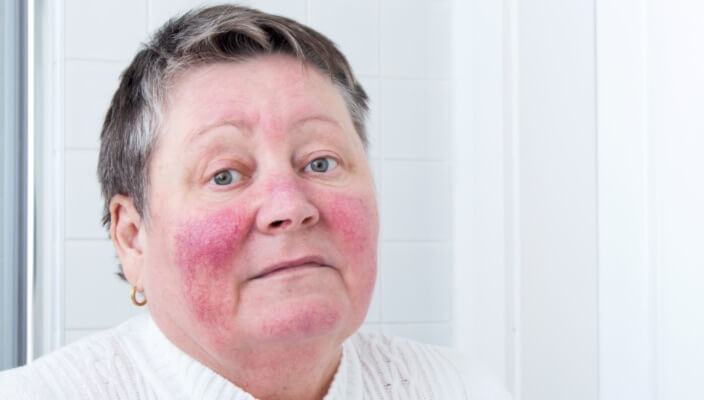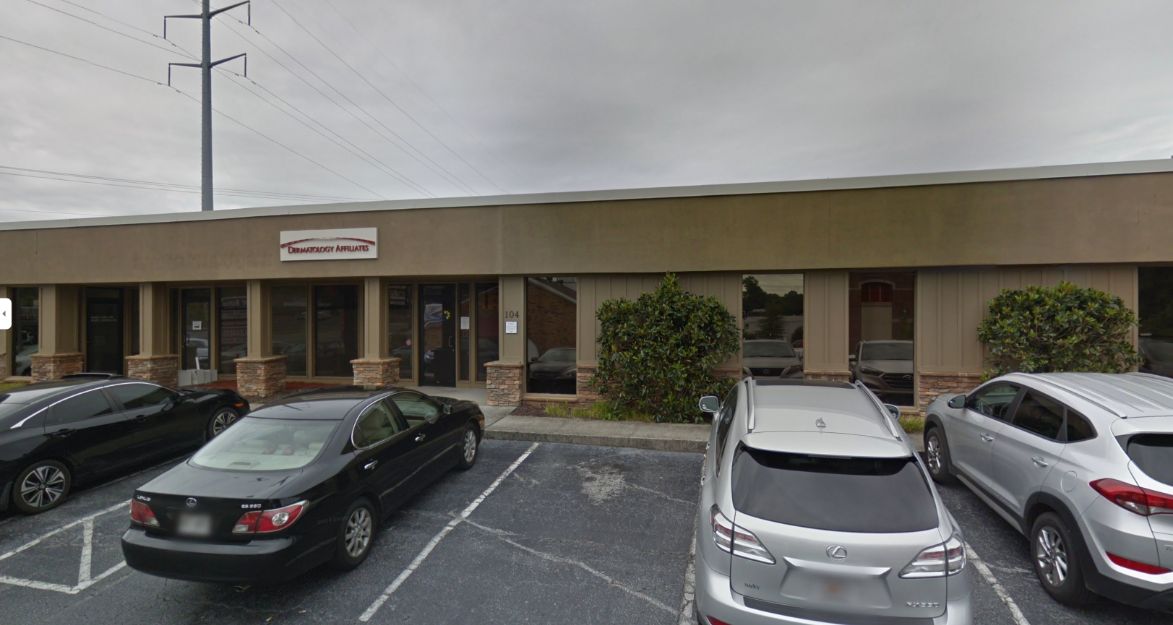My Experience with Rosacea
A Provider's Personal Experience with Rosacea

I recall a fond memory of my grandmother from my teenage years, during which she resided in New York City and our encounters were infrequent. She often remarked on my "pretty pink cheeks," a feature we both found endearing at the time. Little did we realize then that this blush was an early indication of rosacea, a condition I only became acquainted with in my early 40s.
It often surprises people when I disclose that I've been managing rosacea since my early 20s. Initially, the subtle rosy hue that followed my first glass of wine seemed innocuous, merely a personal trademark. However, as time passed, this flush evolved into a persistent redness, prompting me to identify and avoid triggers. Initially, red wine was the culprit, swiftly followed by white wine, which provoked distinct red patches on my cheeks. While currently, I remain unaffected by frozen margaritas or cold champagne, the unpredictability of rosacea prompts contemplation of future triggers.
Upon entering the field of dermatology, a colleague astutely identified my rosacea, noting the visible effects of stress on my complexion during demanding clinic sessions. Despite the inevitability of such occurrences, I couldn't help but chuckle at the observation.
One memorable incident occurred when, against my better judgment, I indulged in a sip of red wine at a friend's insistence. Within moments, a fellow diner mistook my ensuing discomfort for a novel beauty regimen, unaware of the discomfort I endured as I covertly applied ice to soothe my burning cheeks.
Simply having chronically red cheeks does not mean you have rosacea. And having rosacea does not mean you have to have red cheeks all the time.
It's important to note that chronic facial redness doesn't necessarily signify rosacea, nor does a rosacea diagnosis condemn one to perpetual flushing. Rosacea is a reactive condition, wherein specific triggers provoke flushing or blushing, often localized to the cheeks. Prolonged exposure to these triggers can lead to permanent dilation of facial blood vessels, accompanied by inflammation that may manifest as pimples, pustules, or, in severe cases, rhinophyma.
Genetics and sun exposure are established factors in rosacea development, particularly evident in populations like the British who inhabit sunnier climates. Additionally, certain enzymatic activities and molecular interactions contribute to the condition's pathogenesis.
Furthermore, ocular rosacea presents its own set of challenges, characterized by chronic inflammation and discomfort in the eyes, often unrelated to external triggers.
Treatment options for rosacea abound, ranging from anti-inflammatory agents like low-dose doxycycline to isotretinoin for severe cases involving pustules and enlarged sebaceous glands. Topical therapies and laser treatments also offer promising results in managing symptoms and reversing vascular abnormalities.
Seeking guidance from a dermatologist or dermatology physician assistant at Dermatology Affiliates is paramount in addressing rosacea effectively and mitigating its long-term effects. While stress may be an unavoidable facet of our lives, rosacea need not be a perpetual burden, thanks to advances in dermatological care and treatment modalities.
Featured Products
Check your local office for current stock!
Check your local office for current stock!



